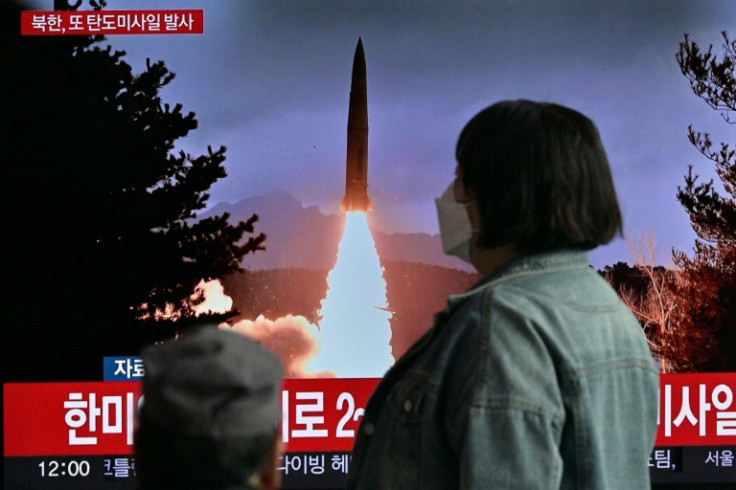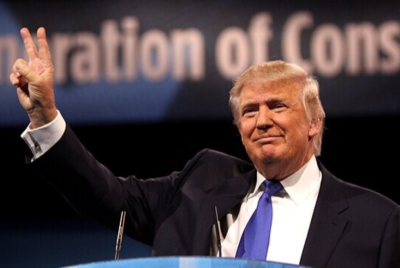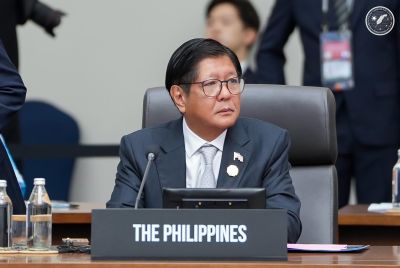North Korea fires 'suspected ballistic missile' in Sea of Japan
The North Korean weapons recently tested included its longest-range Hwasong-17 ICBM, which is designed to strike the U.S. mainland.

Japan's Ministry of Defence stated that North Korea launched a "suspected ballistic missile" on Sunday. By launching the missile into the Sea of Japan North Korea's Kim Jong-un has threatened the world once again.
The announcement comes after a flurry of missile tests by North Korea, which included the firing of two cruise missiles from a submarine on Wednesday and Thursday as leaders from South Korea and Japan met in Tokyo, as well as the launch of two short-range ballistic missiles on Monday.
Pyongyang has ramped up its testing activities in response to United States and South Korea carrying out large-scale military drills that it views as an invasion rehearsal.
[Emergency alert]
— PM's Office of Japan (@JPN_PMO) March 19, 2023
North Korea has launched a suspected ballistic missile. More updates to follow.
The missile that was launched on Sunday appears to have landed, according to a statement from the Japan Coast Guard that was released at 11:20 a.m. local time, CNN reported.
All vessels were advised to use caution while approaching fallen debris, to wait for more information, and to report anything suspicious.
The Dongchang-ri region of North Pyongan province in North Korea fired one short-range ballistic missile at about 11:05 a.m. local time, according to the Joint Chiefs of Staff (JCS) of South Korea.
In anticipation of more launches, the military has stepped its monitoring and vigilance, according to the JCS, "while maintaining a full readiness posture through close cooperation with the US."
The most significant joint military drills between the United States and South Korea have been held in the past five years coincide with Pyongyang's most recent tests.
North Korea has warned to conduct "the harshest counteraction against the most heinous plans of the US and its followers" before the 11-day Freedom Shield exercises.
After North Korea's assertion that 800,000 of its citizens had volunteered to join or reenlist in the country's military to fight against the U.S., the ballistic missile launch took place on Sunday.
According to report on Saturday in the official newspaper Rodong Sinmun, approximately 800,000 students and employees nationwide expressed a willingness to register or reenlist in the military on Friday alone to oppose the U.S.
The military drills are being blamed by Kim for escalating tensions with the U.S. and South Korea. The North Korean weapons recently tested included its longest-range Hwasong-17 intercontinental ballistic missile, which is designed to strike the US mainland. North Korea's state media quoted leader Kim as saying that the ICBM launch was meant to "strike fear into the enemies", Mirror reported.
Belligerent threats are a common way for North Korea to react to what it perceives as "provocations" by the U.S. According to experts, aside from the combined military drills and the meeting this week between Presidents Yoon Suk Yeol of South Korea and Fumio Kishida of Japan, South Korea has taken issue with U.S. President Joe Biden's proposal to host Yoon and his wife at the White House next month.
The state visit, which will take place on April 26 and mark the second of Biden's presidency, will highlight the close ties between the U.S. and South Korea. Yoon, a conservative, and his government have prioritised bolstering the U.S.-South Korea alliance.
In response to the drills and summits, Pyongyang may "order missile firings of longer ranges, attempt a spy satellite launch, demonstrate a solid-fuel engine, and perhaps even conduct a nuclear test," according to Leif-Eric Easley, a professor at Ewha Womans University in Seoul.
© Copyright IBTimes 2025. All rights reserved.





















